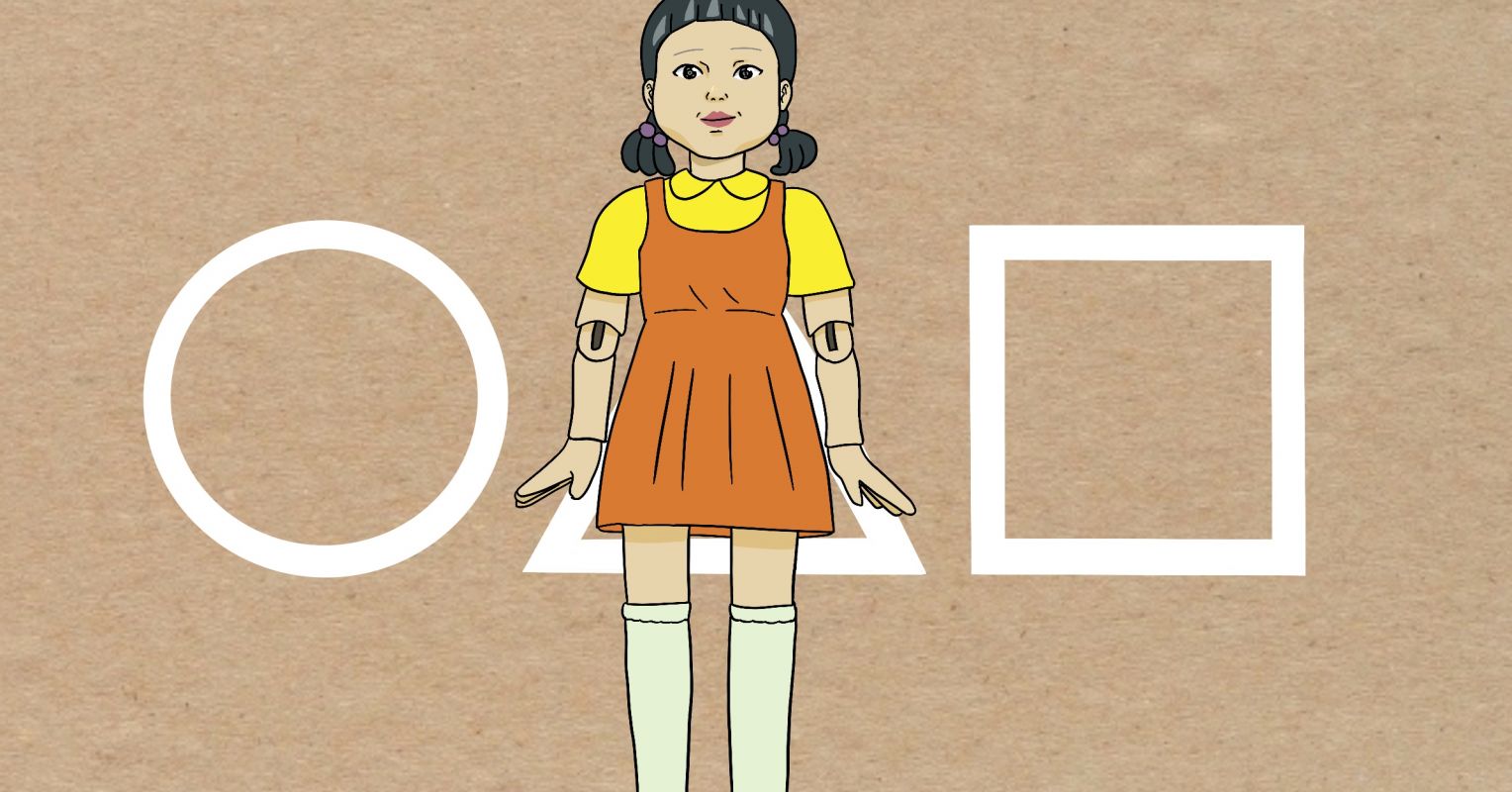How South Korean society (unfortunately) inspired the squid game
[ad_1]
Squid game
Source: Tirachard / Freepik (Context), Yoo Jung Kim, MD (Illustration)
Unless you’ve lived under a rock, you might have heard of Squid game. This South Korean fictional series from Netflix features desperate individuals battling it out in a deadly kid game series for a chance to win $ 38 million. The series captured the imaginations of viewers around the world, becoming the most watched series in Netflix history.
But why does the show focus on children’s play? In the context of the story, the six children’s games (red light / green light, dalgona, tug of war, collection of marbles, springboards and titular squid game) presented are included by the game master, as they were a key part of his childhood. Aesthetically, the childish innocence of the games and the candy-colored background clash strongly with the cruel choices and brutal deaths of each turn. And based on my own experience in South Korea, I wonder if the childishness of murder games serves as a sinister reminder of how South Korea’s mad race for white-collar respectability begins in infancy.
An excellent performance in elementary school allows entry into a top-level college, increasing the chances of being admitted to an elite high school. Success in an elite high school increases the chances of admission to South Korea’s three most prestigious universities: Seoul National University, Korea University, and Yonsei University. These universities (highly referred to as “SKY”) feed their graduates into leading companies and enterprises, resulting in higher salaries and better marital prospects.
However, what may superficially appear to be meritocracy on paper is anything but. Every step can be made more accessible with money, including high schools, private lessons, and trips abroad for cultural and language education. And at the end of the day, there can only be a limited number of winners.
Given this pressure cooker culture, it’s no wonder South Korea’s suicide rate is abysmal. Among the 38 member countries that represent the Organization for Economic Co-operation and Development, South Korea’s suicide rate was the highest, with 24 suicide deaths per 100,000 deaths. In comparison, the suicide rate in the United States was 14.5 suicide deaths per 100,000 deaths.
Squid game Creator, Writer, and Director Hwang Dong-hyuk is no stranger to advocating for the weak by using his films to spark emotion and discussion in audiences. His second feature film, Quiet, was based on a story from a school for the deaf in which students were physically and sexually assaulted. At the time, he commented: “I started making movies because I was so frustrated with all these unresolved social issues that I saw. We can see through the movies how great we are. changed by the world. You can’t change society with just one movie, but looking at the repercussion of releasing that movie, we can think of the power that the movie has in terms of a positive impact on society. “
Squid game was born from the same impetus. Hwang told IndieWire that the show’s initial conception took place during the 2008 financial crisis. He noted that the difference between “winners†and “losers†in the decade that followed grew sharper. “There was the cryptocurrency boom, where people all over the world, especially young people in Korea, went all out and invested all their money in cryptocurrencies. And there was the rise of the giants of IT like Facebook, Google, and in Korea, there’s Naver, and they’re just restructuring our lives. It’s innovative, but these IT giants have also gotten very wealthy. “
Year after year since the financial crisis, the premise of Hwang’s show, in which desperate contestants stake their lives for a chance to get out of a financial rut while the ultrarich watch with indifference, seems less. less ridiculous.
The explosive popularity even prompted the North Korean media Arirang Maeri to criticize the show and its neighbor to the south, saying, “The show demonstrates the grim reality of the bestial South Korean society in which human beings are drawn into extreme competition and their humanity is devastated.”
While it’s fun to hear North Korea comment on human brutality and miss (or ignore) the show’s satirical bent, the writer seems to understand the underlying premise of the problems that arise in an inherently unfair system.
The show is so compelling because it introduces viewers to the victims of a society where the poor get poorer and the rich get richer. And ultra-violent murder games aside, it shows us a world that feels too familiar for comfort, in Korea and elsewhere.
If you or someone you love is planning to kill yourself, get help right away. For 24/7 assistance, contact the National Suicide Prevention Lifeline, 1-800-273-TALK, or the Crisis Text Line by texting TALK to 741741. To find a therapist near in your home, consult the Psychology Today Therapy Directory.
[ad_2]

